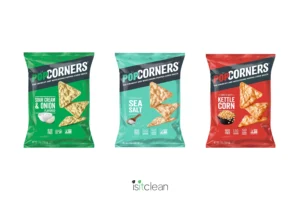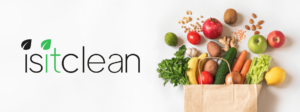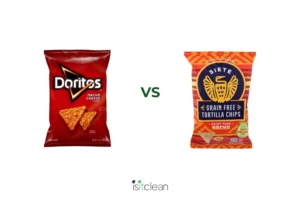
Acesulfame potassium is a zero-calorie sweetener that is added to many sugar-free…



Hydrogenated vegetable oil is a type of fat created through a chemical process known as hydrogenation. It involves adding hydrogen molecules to liquid vegetable oils (commonly coconut, palm, rapeseed, soybean, sunflower, or olive) to make them more solid and stable at room temperature. This process increases the oil’s shelf life and improves its texture for various food applications, like in margarine, baked goods, and fried snacks. To produce hydrogenated vegetable oil, liquid vegetable oil is heated and exposed to hydrogen gas in the presence of a catalyst, typically a metal like nickel. This causes the unsaturated fatty acids in the oil to become saturated, altering the oil’s chemical structure and making it more solid. Hydrogenated oils are primarily composed of stearic acid.

Fully hydrogenated oils are not naturally occurring and can be a significant source of saturated fat. While partially hydrogenated oils have been banned for use in foods due to the presence of trans fats, fully hydrogenated oils are still considered GRAS as they don’t produce trans fats. Research is limited on the health effects of hydrogenated oils specifically, and is more available on stearic acid, a type of saturated fat that has been associated with increased inflammation and altered metabolism. However, other research suggests potential health benefits of stearic acid, such as reducing the risk of atherogenic risk factors and supporting mitochondrial fusion. Hydrogenated oils are commonly used in highly processed foods and may be derived from highly refined vegetable oils. While hydrogenated oils may be derived from more healthful oil choices, such as olive and coconut, it is less commonly derived from these oils, so it is important to check the source of the oils on the nutrition label as food manufacturers normally specify the source.
Health is like a bank account, certain ingredients make a deposit into your health bank, meaning they add to
your health. Certain ingredients withdraw from your health bank. We want health promoting ingredients in our diet. To keep things simple, we rate ingredients on a green, yellow, red scale:

It is naturally occurring in food and has no harmful effects on the body. It is real food. It is health promoting.

It goes into one or more of the below categories

It is known to have a harmful effect on the body (ex. All food colorings, Natural Flavors, MSG, Potassium bromate, aspartame, artificial flavors)



The Food Showdown: Popcorners flavors
Ingredient Rating: Canola oil – is it bad for you?
Clean Consuming: Nourishment for your

We have accomplished so much in just 1 year since our launch in March of 2023! We now have 10,000

The Nacho Chip Food Showdown, is Tapioca Starch safe in food? and a must-see documentary on America’s food system.
Stay in the know with the latest ratings, articles, and our newsletter, The Dirt.